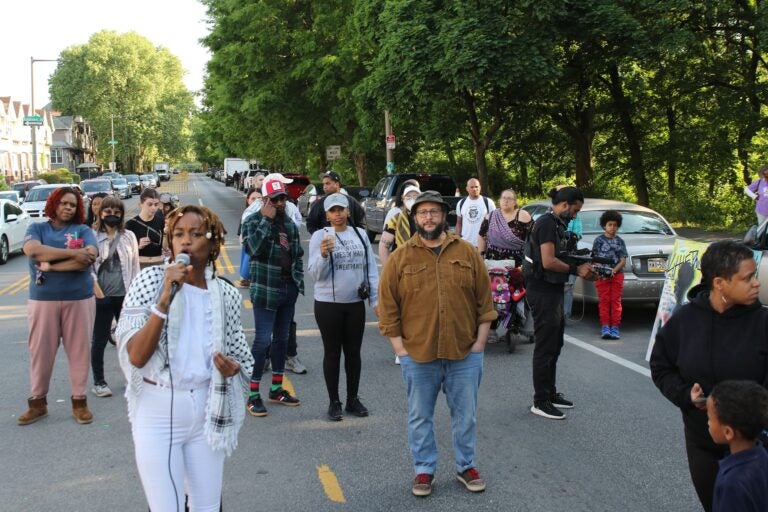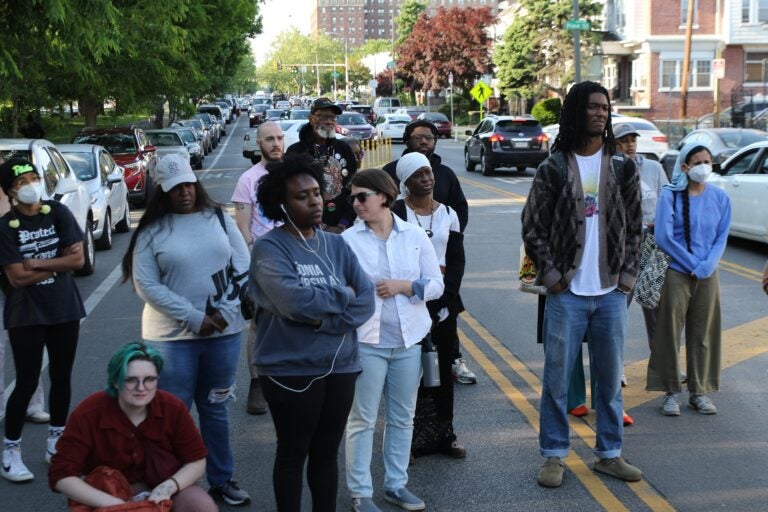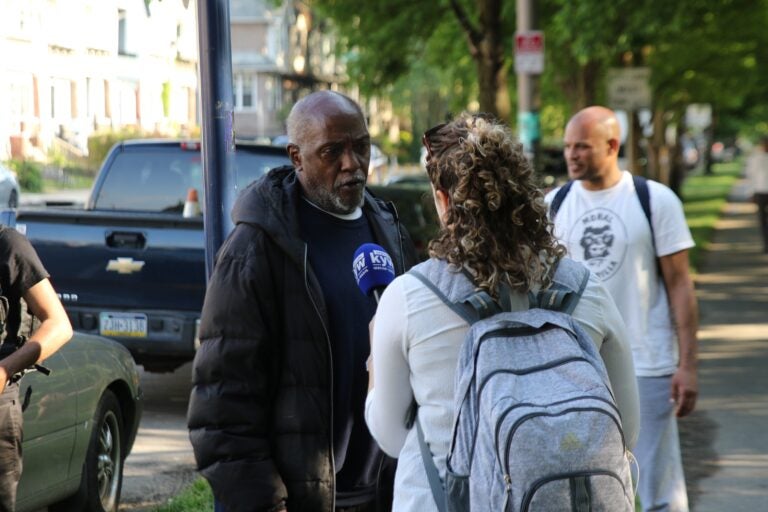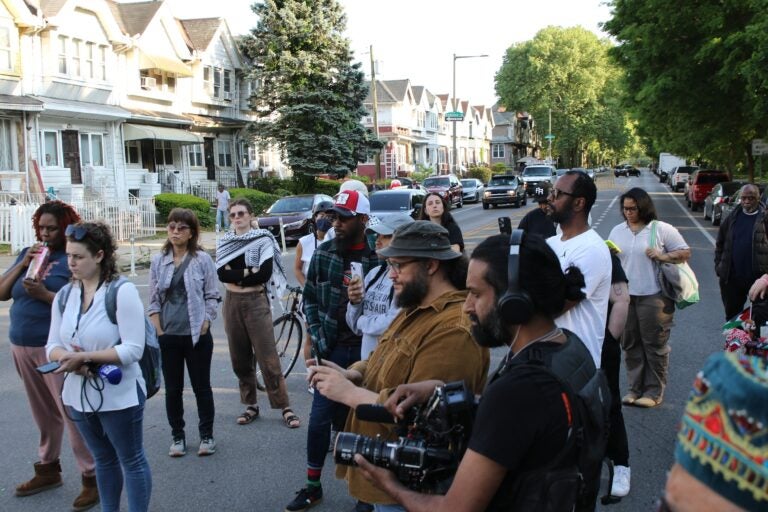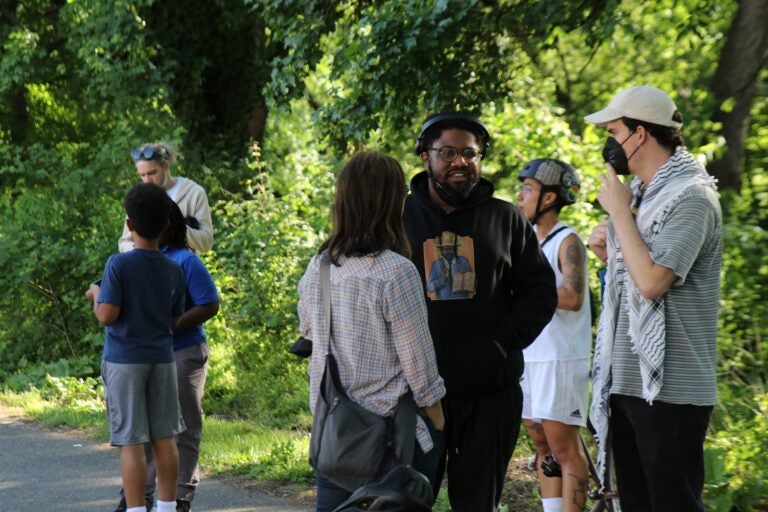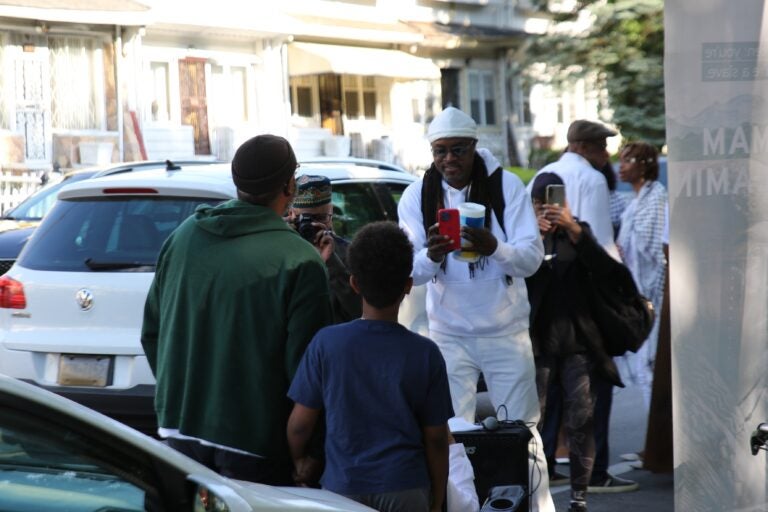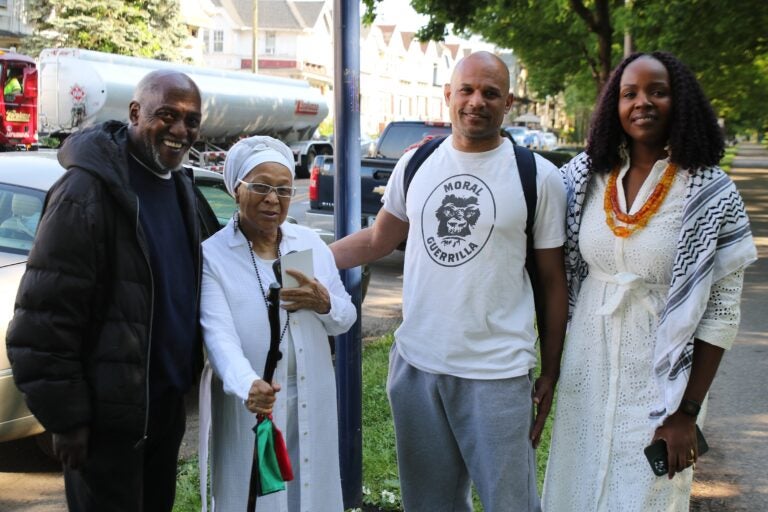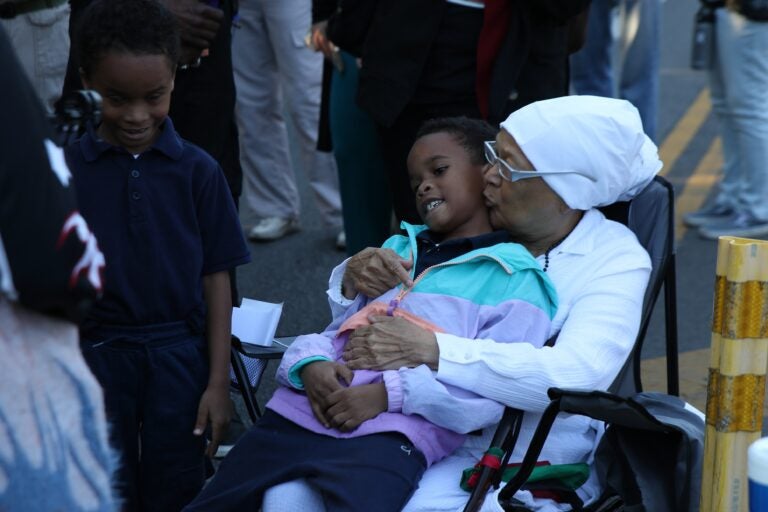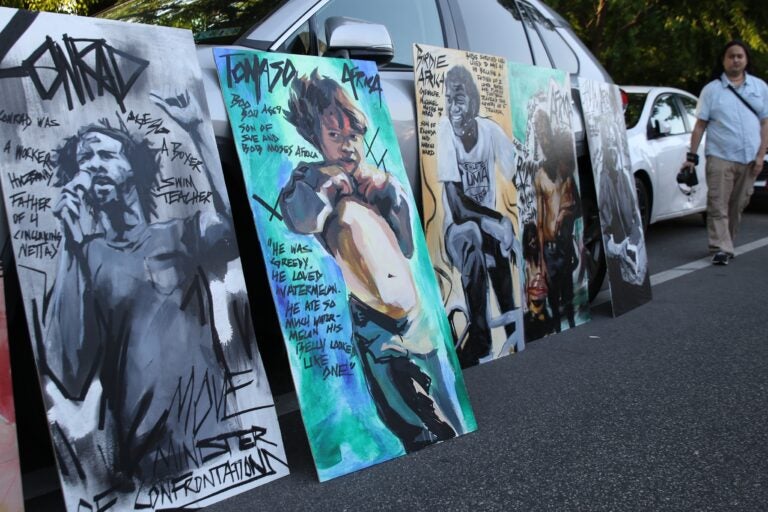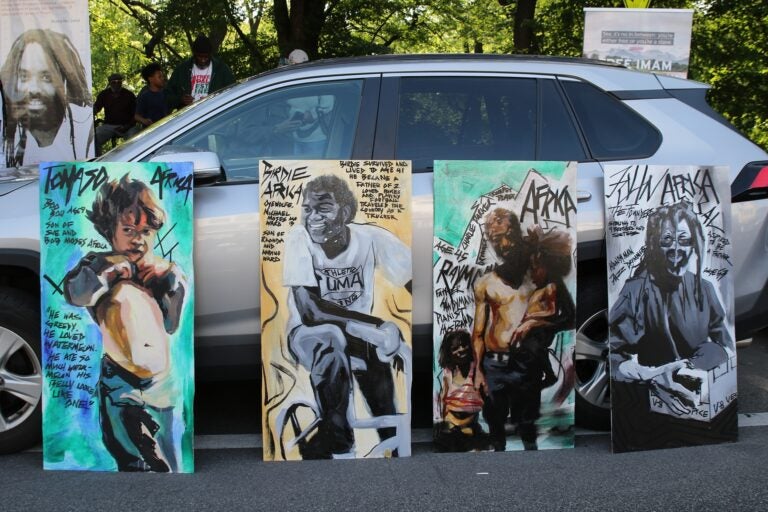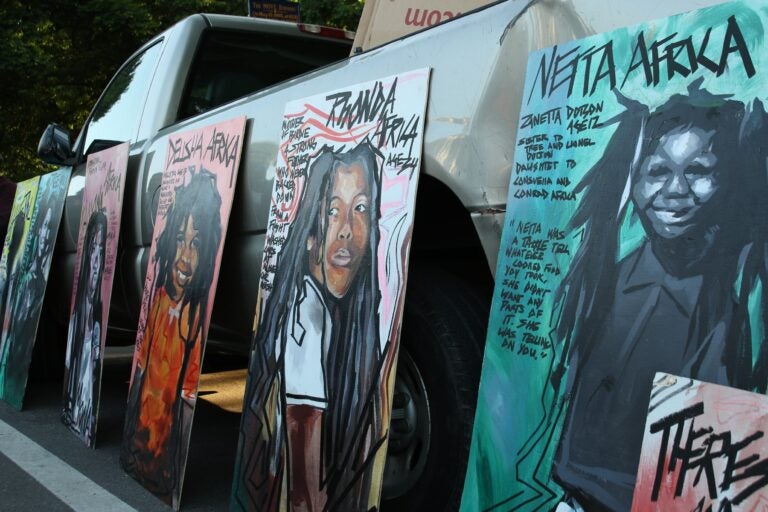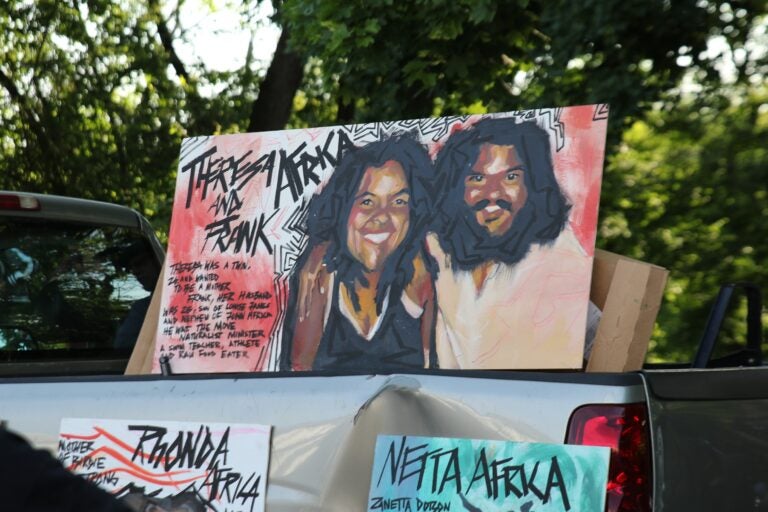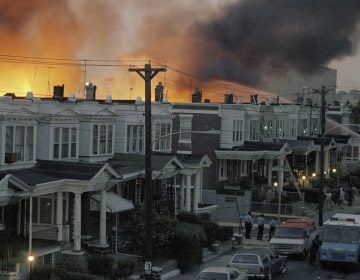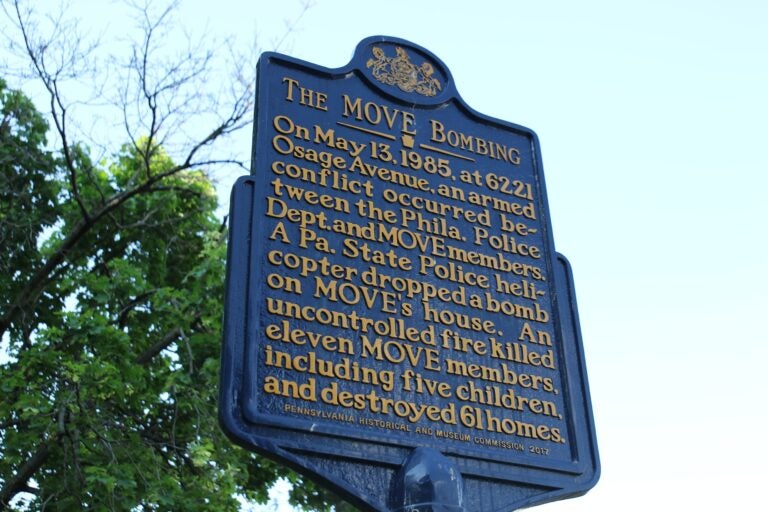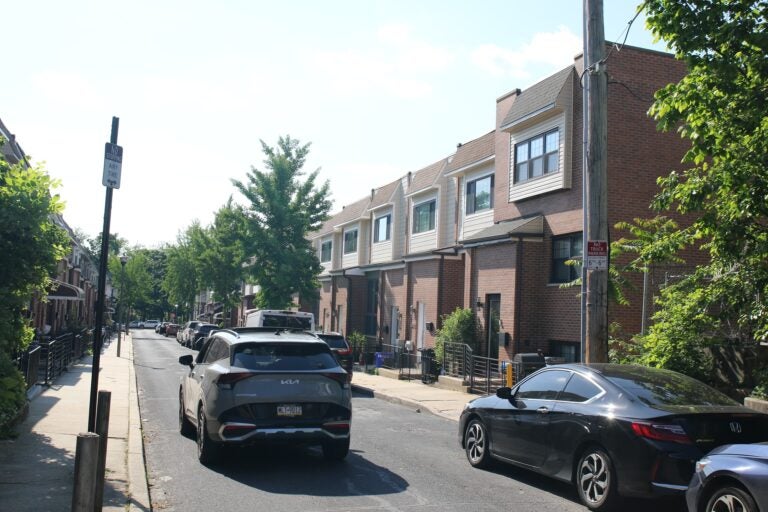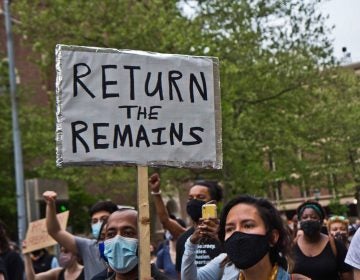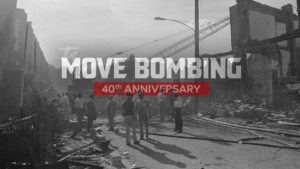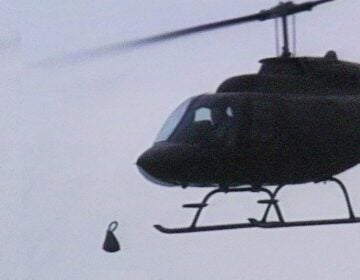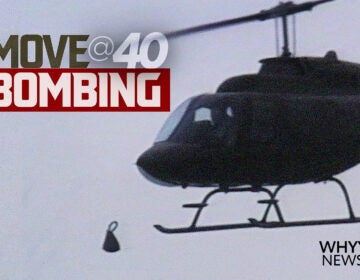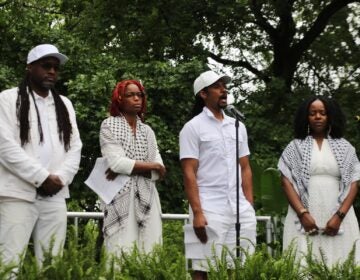39 years after MOVE bombing, activists remember victims of the West Philly tragedy
“It’s really important for us to document this history, talk about things — and to never forget,” Mike Africa Jr. said.
Listen 1:20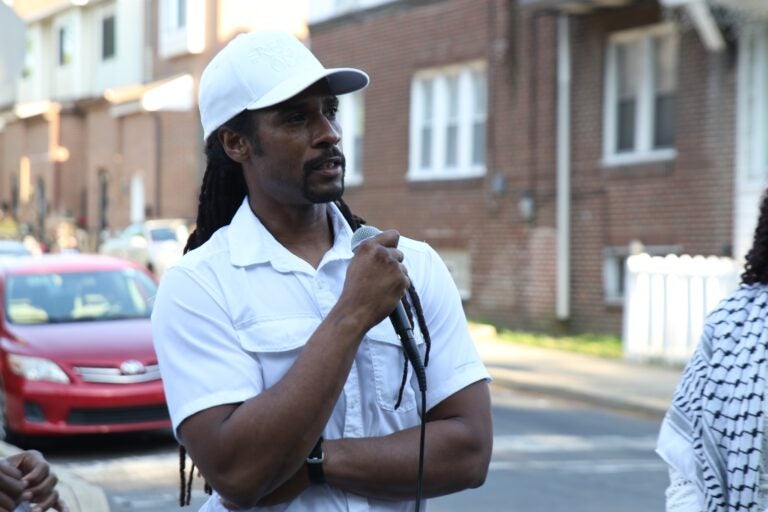
Mike Africa Jr. said he didn't want the victims of the MOVE bombing to be "faceless" when reflecting on the 39th anniversary of the event. (Cory Sharber/WHYY)
From Philly and the Pa. suburbs to South Jersey and Delaware, what would you like WHYY News to cover? Let us know!
A gathering was held Monday honoring the 11 victims of the 1985 MOVE bombing.
The day marked 39 years since Philadelphia police dropped a bomb on the home of the Black liberation group MOVE at 6221 Osage Ave. The fire that followed was left to burn by the fire department. It resulted in the deaths of five children and the destruction of 61 homes across two blocks of the predominantly Black neighborhood.
Multiple speakers, including family member Mike Africa Jr., read the names of the victims in the middle of Cobbs Creek Parkway on Monday, down the block from where the bombing happened. Africa Jr. said he didn’t want those who perished to be “faceless victims.”
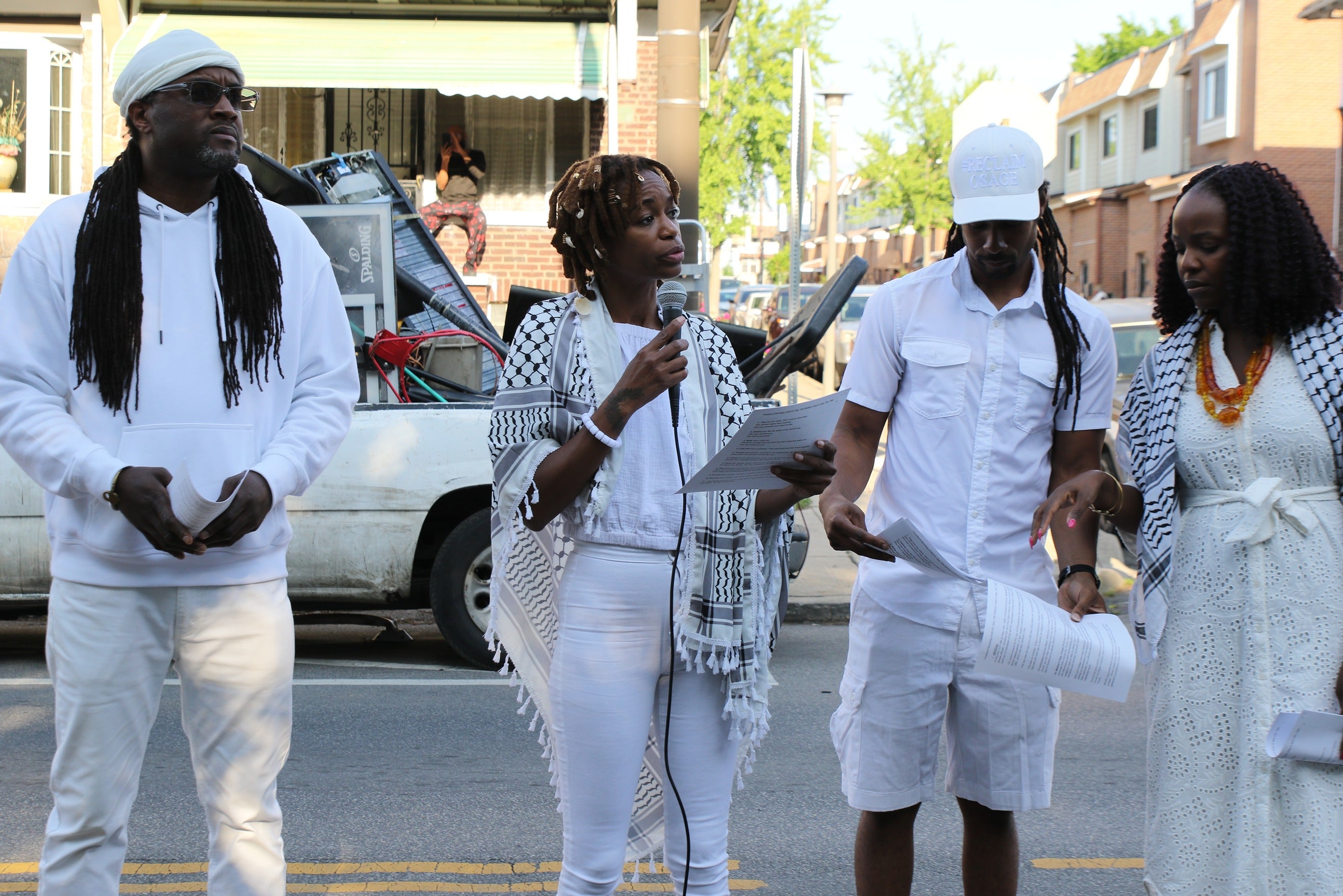
“Our people weren’t just names, they were people,” he said. “They had lives, they had dreams, they had interests, they had feelings. They were taken, snuffed out. They were murdered. It’s really important for us to document this history, to talk about these things, and to never forget. If you forget, history is bound to repeat itself.”
Five hundred police officers were present in “flak jackets, tear gas, SWAT gear, .50- and .60-caliber machine guns, and an anti-tank machine gun,” according to the MOVE investigation report. The fire department flooded the home to force the occupants to leave. When that failed, police used explosives to gain entry through the front and adjacent walls, then pumped tear gas into the home.
Several shots were fired from the MOVE home at the officers. Officers returned fire, sending 10,000 rounds into the home. Following a 12-hour standoff, at 5 p.m., Mayor Wilson Goode approved the use of explosives to destroy the bunker on top of the house. No one was ever criminally charged for the bombing.
The names of the child victims are Tomaso “Boo” Levino, Delisha Orr, Zanetta Dotson, Phil Phillips and Katricia “Tree” Dotson. The adults were Theresa Brooks, Frank James, John Africa, Raymond Foster, James Conrad Hampton and Rhonda Ward.
Africa Jr. said while the bomb itself received a lot of attention, the real issue is “murder.”
“It wouldn’t be what it is without the murders. Eleven people were murdered and then their bodies were stolen by Penn and used as research material and teaching material at Princeton,” Africa said. “It could happen again.”
In 2021, it was reported the University of Pennsylvania possessed the remains of child victims Katricia and Zanetta Dotson without the knowledge of their relatives.
Their brother sued the city and the university in 2022 for “torturous interference” of a dead body and emotional distress, among other charges.
YahNé Ndgo said what happened 39 years ago was “unthinkable” and “unacceptable,” and that those impacted “will always stand in remembrance of the people.”
“We are here to remember and honor the people who were not treated as people, not considered as people, not remembered as people when the city of Philadelphia decided not only that they were going to drop a bomb, but that they were going to let the fire burn,” Ndgo said. “Not only did they let the fire burn, but they shot bullets at people as they moved to escape.”
Ndgo added she believes everyone in Philadelphia “should remember this moment.”
“Same way you decide you’re not going to take the parkway on July 4th, unless you want to be in the July 4th activities,” Ndgo said. “On May 13 at this time, you need to be thinking this is a time when the city is remembering what happened to MOVE, and … I’m here to celebrate, commemorate, remember their lives.”
Philadelphia City Council passed a resolution in 2020 apologizing for the attack, which was rejected by MOVE via a statement on X (formerly Twitter) and demanded the release of Mumia Abu-Jamal from prison.
In 2018, two members of the MOVE Nine convicted of killing police officer James Ramp in a shootout in Philadelphia’s Powelton Village neighborhood in 1978 were released from prison.
From Thursday through Sunday, guided tours of the “MOVE: The Old Days” exhibit will take place at the Paul Robeson House and Museum at 4951 Walnut St. in Philadelphia.

Get daily updates from WHYY News!
WHYY is your source for fact-based, in-depth journalism and information. As a nonprofit organization, we rely on financial support from readers like you. Please give today.



